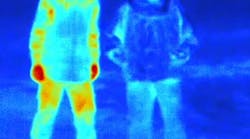WASHINGTON - As the noted 20th century American sage Yogi Berra said, “It ain’t over till it’s over.”
Despite the compromise intelligence bill hammered out by Congress Dec. 7 and 8, the issue of coordinating this country’s intelligence operations to tackle the issue of terrorism is far from resolved.
Yet despite President Bush’s effusive praise for what he called “historic legislation that will better protect the American people and help defend against ongoing terrorist threats,” the fact remains that the intelligence function continues to be a Washington turf fight.
Fifteen military and civilian spy agencies are being pulled together under one umbrella, as per the recommendations of the 9/11 Commission in July, but this only papers over the dividing line between the military and civilian sides of the house.
In fact, the Defense Department had been the major stumbling block to the compromise on the grounds that it needed to maintain its chain of command to get critical intelligence from satellites (“national technical means”) to the soldiers in the field in time for them to take effective action.
This is essentially the dividing line that no legislation will ever erase: the hardware-related military intelligence function and the labor-intensive human intelligence, or “humint,” that is the province of the CIA.
It seemed compelling to me as of Sept. 12, 2001, that this should not be a zero-sum game and that the signals intelligence (“sigint”) and communications intelligence (“comint”) from the military surveillance apparatus, particularly the National Security Agency, should be part of an overall pattern that includes the CIA’s humint.
The defense industry obviously has a vested interest in preserving the hardware side of the operation, but this should not rule out what I think is an almost mandatory trend toward greater reliance on humint in light of the terrorists’ shadowy global operations.
There certainly should be no lack of money available for all these purposes. Also in early December Congress completed work on the omnibus spending bill for fiscal year 2005, which began Oct. 1, in which the new Department of Homeland Security received appropriations of $32 billion.
That’s $1.1 billion over the 2004 level and $496 million more than President Bush had requested, including an extra $76 million for the science and technology unit.
The Defense Department, meanwhile, got $416.2 billion in appropriations for the new fiscal year. That doesn’t include a $70 billion supplemental request to go before Congress this month, so the Defense Department should wind up with $23.8 billion more than in 2004.
The issue goes beyond budgets and organization charts. Most perplexing, the new legislation does not magically settle how to coordinate intelligence. President Bush initially resisted creating a new Department of Homeland Security, wisely in my view, on the grounds that shuffling government workers around to get them all under one umbrella was no guarantee that their intelligence data would be properly coordinated on a timely basis.
The new legislation tries to correct that deficiency by creating a new director of national intelligence to oversee all the civilian and military operations. This was at the heart of the 9/11 commission’s recommendations.
The new director will not, however, be part of the President’s cabinet, although he will have access to the secretaries of state and defense. He will also be able to move intelligence assets around the globe to keep an eye on terrorist groups like al-Qaida and such potentially troublesome nations as North Korea.
The legislation appears to be to be a good start, but only a start. I tend to agree with one of the legislation’s principal critics, Sen. Robert Byrd (D-W.Va.), who said it was folly to expect a law to make this country safer from foreign terrorists. “No legislation alone can forestall a terrorist attack on our nation,” he said.
What is really needed here is leadership, and that can come only from the top. In that regard, I think it is significant that the new cabinet-level appointees tend to be White House staff members, who will now be running the departments that they formerly monitored from the Executive Office Building.
The most visible of these, of course, are Condoleeza Rice, the national security advisor, who will be heading the State Department, and White House counsel Alberto Gonzales, the new attorney general.
Equally visible as an absentee from this list is Defense Secretary Donald Rumsfeld, a veteran of Republican politics since the Nixon administration who is now in his second tour of duty at the Pentagon after holding the post under President Ford. He has certainly become the administration’s lighting rod, and this process can only accelerate as the fighting drags on in Iraq.
I wouldn’t attach too much importance to these changes. It is customary for cabinet-level officers to bail out after a successful election and cash in their chips in the private sector.
Moreover, given President Bush’s decisive re-election, it is not necessarily a sign of hubris that he believes he has a mandate to push the policies he campaigned on during the election.
On the other hand (in addition to five fingers) there’s the experience of President Lyndon Johnson, who fell into the hubris trap after an equally resounding election victory 40 years ago. He also considered his victory a mandate and consequently accelerated federal spending and military efforts in an increasingly unpopular war. I suspect I’m not the only one holding his breath to see which way this ball is going to bounce.
As Yogi Berra also said, “Predicting is risky business, particularly about the future.”

